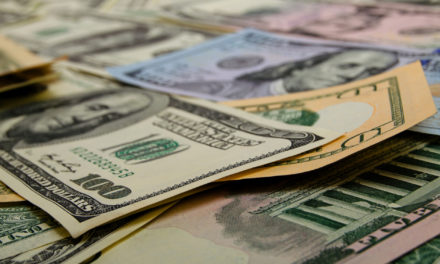
“When we own portions of outstanding businesses with outstanding managements, our favorite holding period is forever.”
— Warren Buffett
A critical pearl of wisdom from Warren Buffett teaches us that with any potential stock investment we may make, as soon as our buy order is filled we will have a choice: to remain a co-owner of that company for the long haul, or to react to the inevitable short-term ups and downs that the stock market is famous for (sometimes sharp ups and downs).
The reality of this choice forces us to challenge our confidence in any given company we might invest into, and keep our eyes on the long-term time horizon. The market may go up and down the interim, but over a two-decade holding period, will the investment succeed?
Back in 1999, investors may have been asking themselves that very question about Tyson Foods Inc (NYSE: TSN). Let’s examine what would have happened over a two-decade holding period, had you invested in TSN shares back in 1999 and held on.
| Start date: | 07/26/1999 |
|
|||
| End date: | 07/24/2019 | ||||
| Start price/share: | $22.31 | ||||
| End price/share: | $81.04 | ||||
| Starting shares: | 448.18 | ||||
| Ending shares: | 570.55 | ||||
| Dividends reinvested/share: | $6.94 | ||||
| Total return: | 362.37% | ||||
| Average annual return: | 7.95% | ||||
| Starting investment: | $10,000.00 | ||||
| Ending investment: | $46,208.94 | ||||
As shown above, the two-decade investment result worked out well, with an annualized rate of return of 7.95%. This would have turned a $10K investment made 20 years ago into $46,208.94 today (as of 07/24/2019). On a total return basis, that’s a result of 362.37% (something to think about: how might TSN shares perform over the next 20 years?). [These numbers were computed with the Dividend Channel DRIP Returns Calculator.]
Always an important consideration with a dividend-paying company is: should we reinvest our dividends?Over the past 20 years, Tyson Foods Inc has paid $6.94/share in dividends. For the above analysis, we assume that the investor reinvests dividends into new shares of stock (for the above calculations, the reinvestment is performed using closing price on ex-div date for that dividend).
Based upon the most recent annualized dividend rate of 1.5/share, we calculate that TSN has a current yield of approximately 1.85%. Another interesting datapoint we can examine is ‘yield on cost’ — in other words, we can express the current annualized dividend of 1.5 against the original $22.31/share purchase price. This works out to a yield on cost of 8.29%.
One more piece of investment wisdom to leave you with:
“The idea that a bell rings to signal when to get into or out of the stock market is simply not credible. After nearly fifty years in this business, I don’t know anybody who has done it successfully and consistently.” — Jack Bogle




